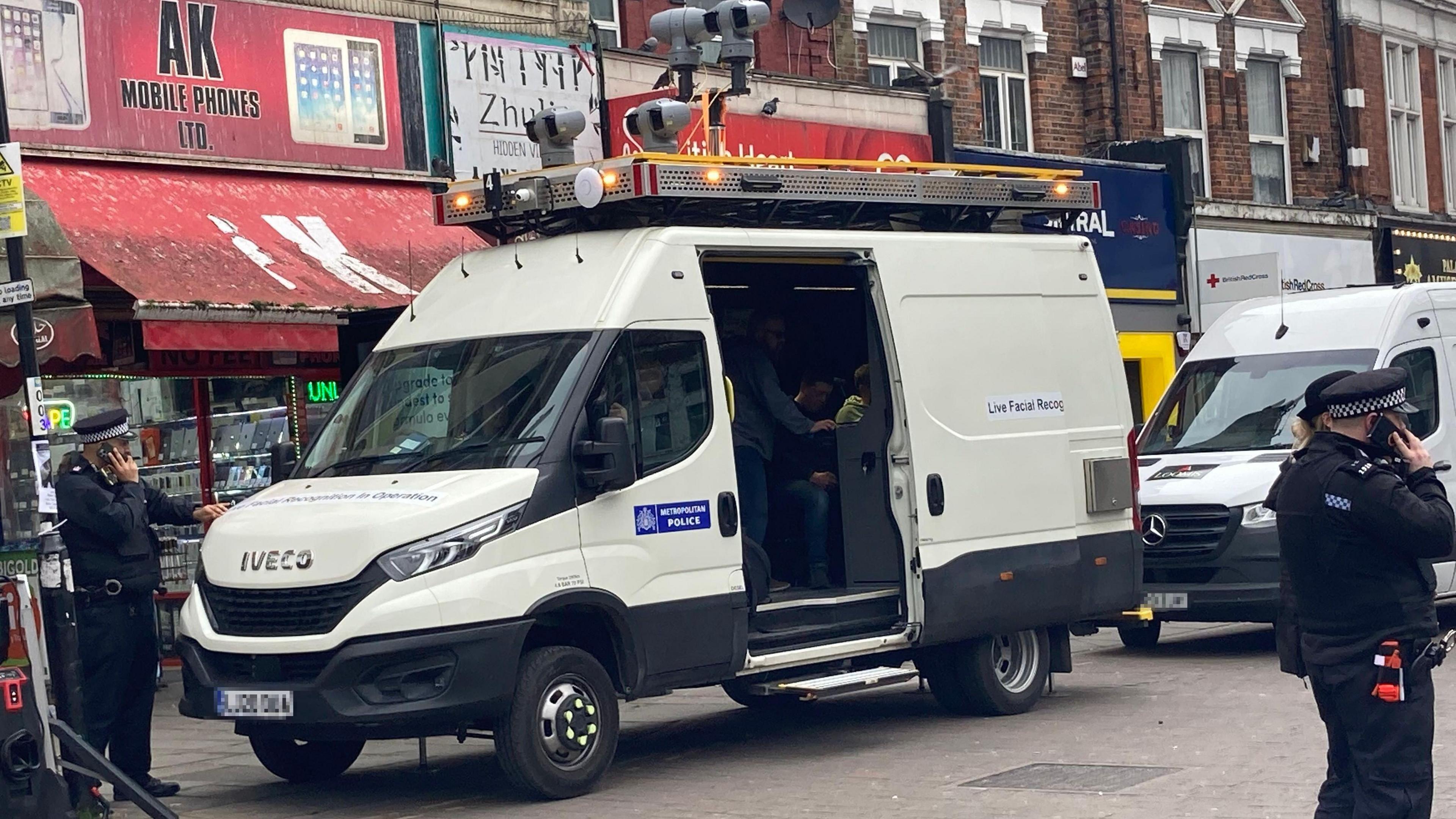Police facial recognition vans 'feel totalitarian'
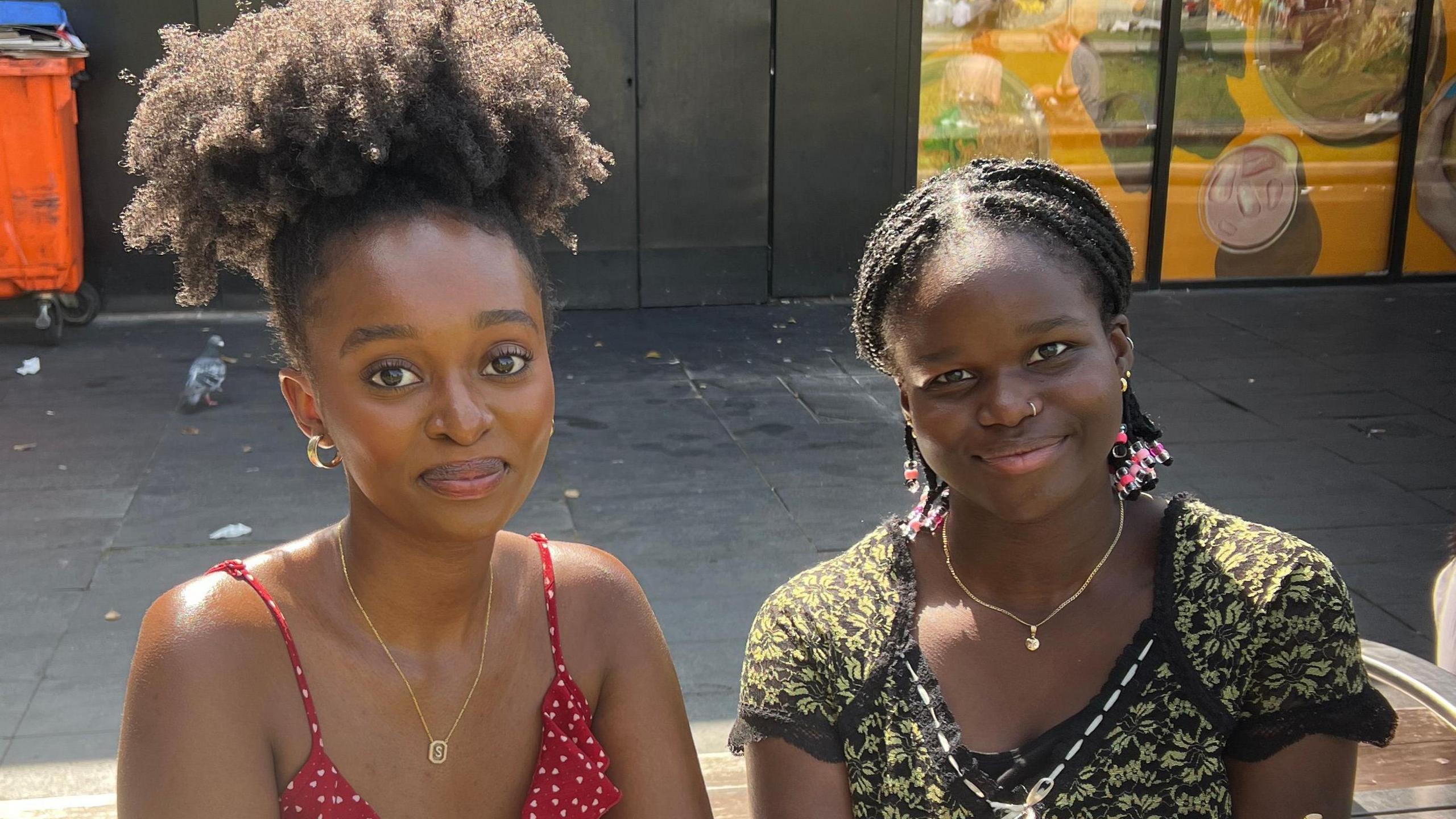
Sylvia Barumire (left) and Fahidat Amusat raised concerns about the technology
- Published
A police force's decision to start using vans with live facial recognition technology in them feel like a "totalitarian" move, young people have said.
Greater Manchester Police (GMP) will be able to scan the faces of passers-by and check them against a database of wanted individuals.
Sylvia Barumire, 18, said: "I think it is quite totalitarian, especially in a society like England that claims to be very democratic and free."
GMP Assistant Chief Constable Rick Jackson said the units would allow officers to "identify offenders, keep people safe and protect our communities" and all activity would be "publicised on our website and social media channels".
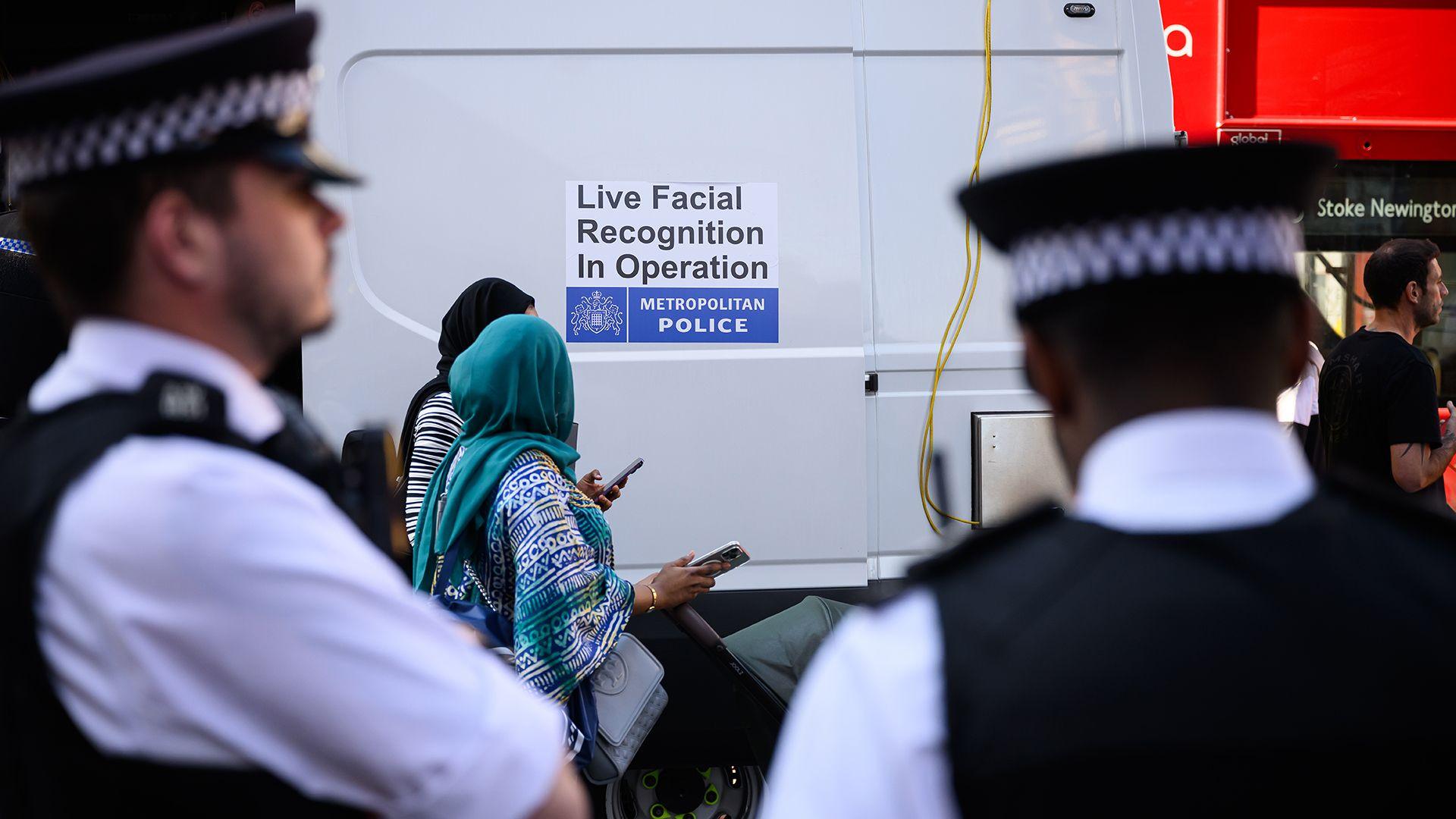
The vans have already been deployed in London, South Wales and Essex
GMP is one of seven forces in England to receive a share of 10 new vans.
The vehicles will be operated by a trained officer who verifies any matches identified by the technology.
The system measures facial features, like the distance between the eyes and the length of the jawline, and compares the data to an existing watchlist.
GMP said all photos were then "immediately deleted and can't be viewed retrospectively".
The technology has already been used in London to make 580 arrests in 12 months, including those of 52 registered sex offenders accused of breaching their conditions.
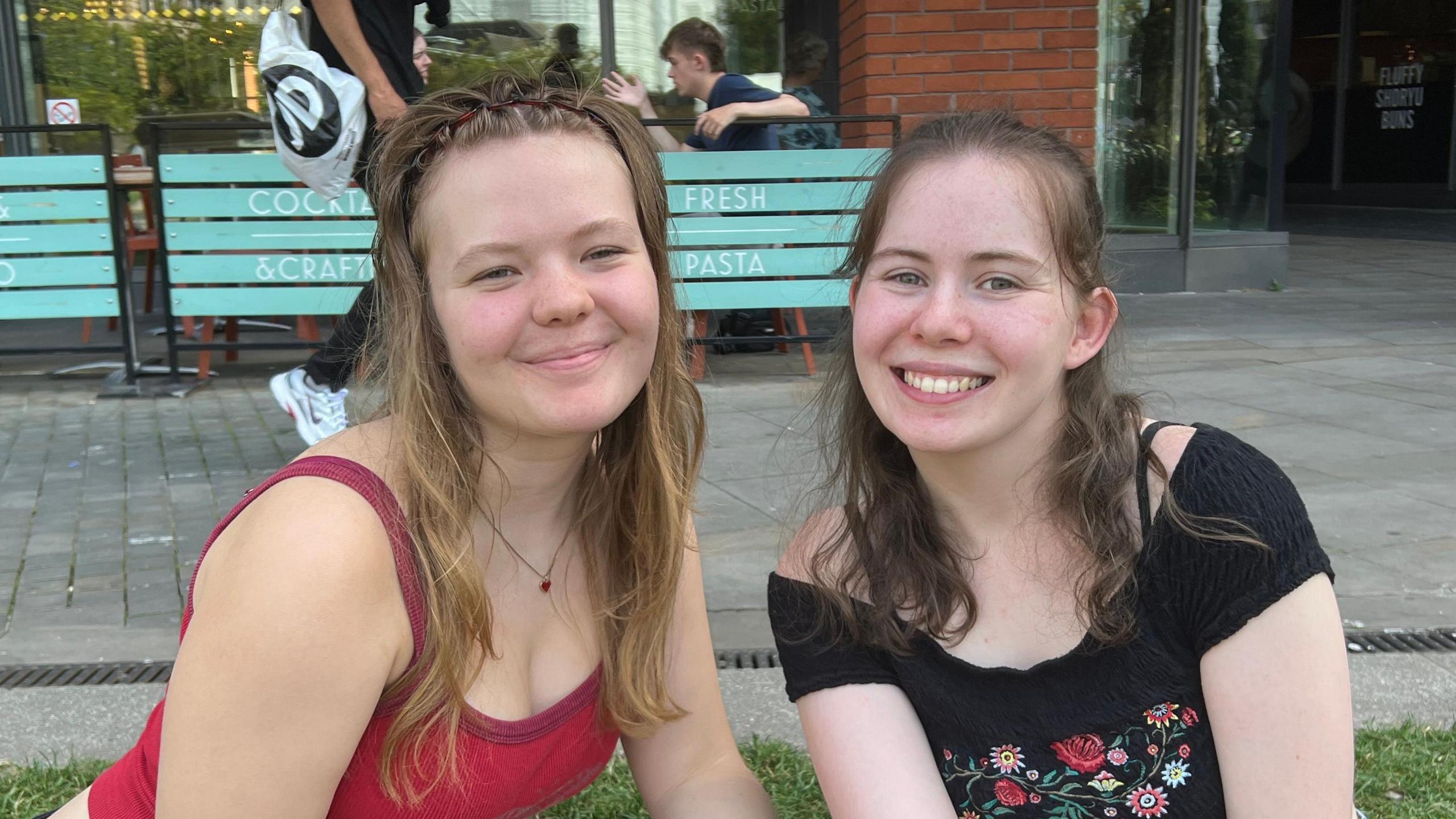
Talia Kerr (left) and Olivia Keane think the vans will be useful if they reduce crime rates
Speaking to the BBC at Piccadilly Gardens, reactions to the vans were mixed.
Mia Kaivanto, 18, raised concerns about data privacy. She said: "More surveillance isn't necessarily equivalent to more efficient arrests."
Another concern, raised by 21-year-old Awsten Heron, was whether the technology would be used to target protesters.
The seven forces receiving a share of the 10 vans are Greater Manchester, West Yorkshire, Bedfordshire, Surrey, Sussex, Thames Valley and Hampshire.
Talia Kerr, 18, and Olivia Keane, 19, said the vans could help people feel "a lot safer".
"I think it is a good idea if it helps reduce crime rates," Ms Keane added.
Jake Johnson, 25, said he thought there was potential for the new systems to be "abused," but if it was used as intended to help catch criminals, it was "ok".
Assistant Chief Constable Jackson said the force would be "deploying two vans with Live Facial Recognition technology as part of the work of our local policing teams to ensure the continued safety of our communities across Greater Manchester".
"We look forward to the introduction of this additional tool to fight crime," he said.
He said the technology would only be used where there was "a strict policing purpose to do so" and would be deployed alongside "traditional policing methods".
"Mobile LFR units will allow us to identify offenders, keep people safe and protect our communities," he added.
"All activity will be publicised on our website and social media channels [and] no decision on where the LFR vans will deployed has been made at this time.
"We will provide notification to the public about any planned ahead of future LFR deployments."
Get in touch
Tell us which stories we should cover in Greater Manchester
Listen to the best of BBC Radio Manchester on Sounds and follow BBC Manchester on Facebook, external, X, external, and Instagram, external. You can also send story ideas via Whatsapp to 0808 100 2230.
Related topics
- Published14 August
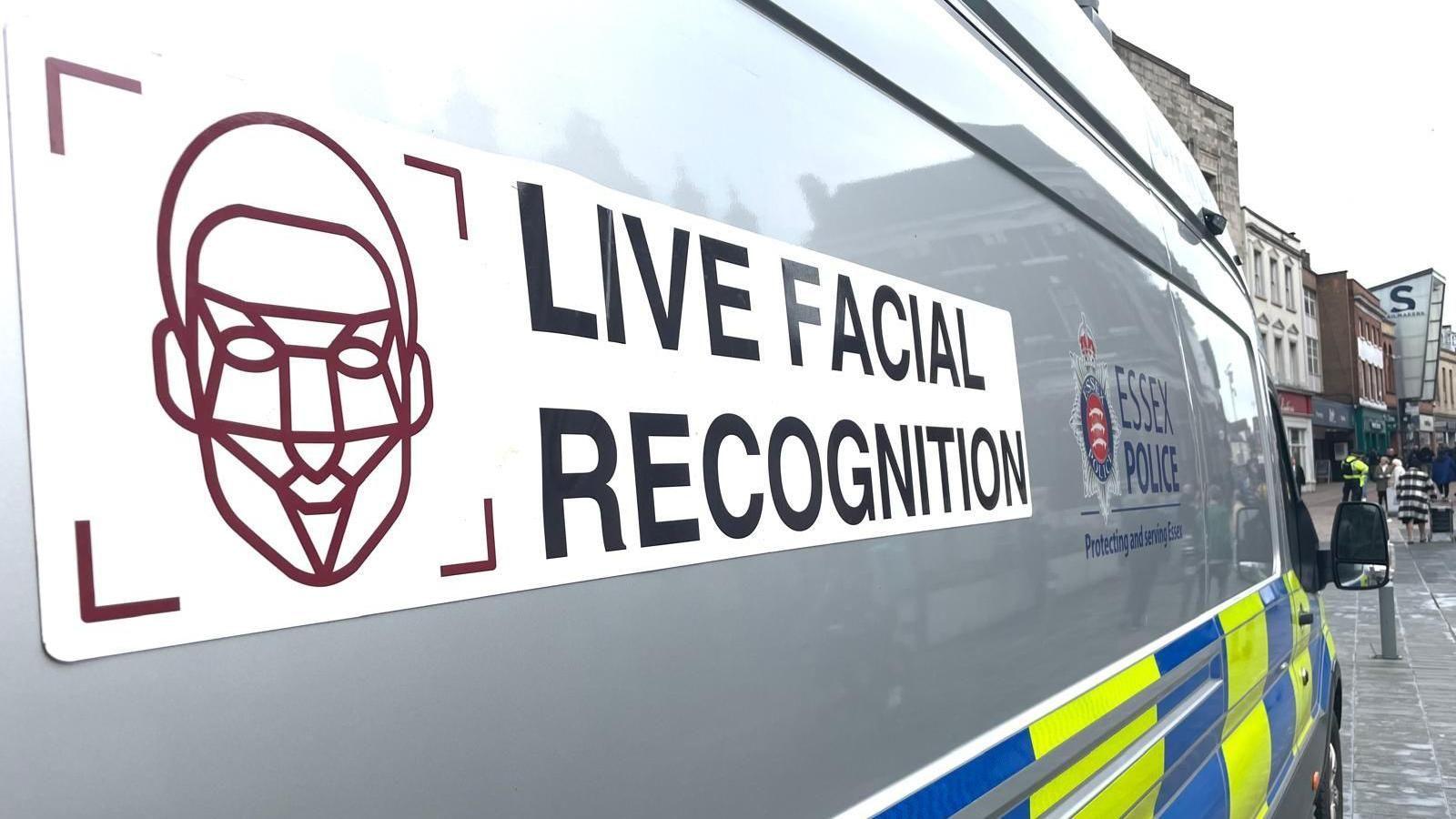
- Published6 August
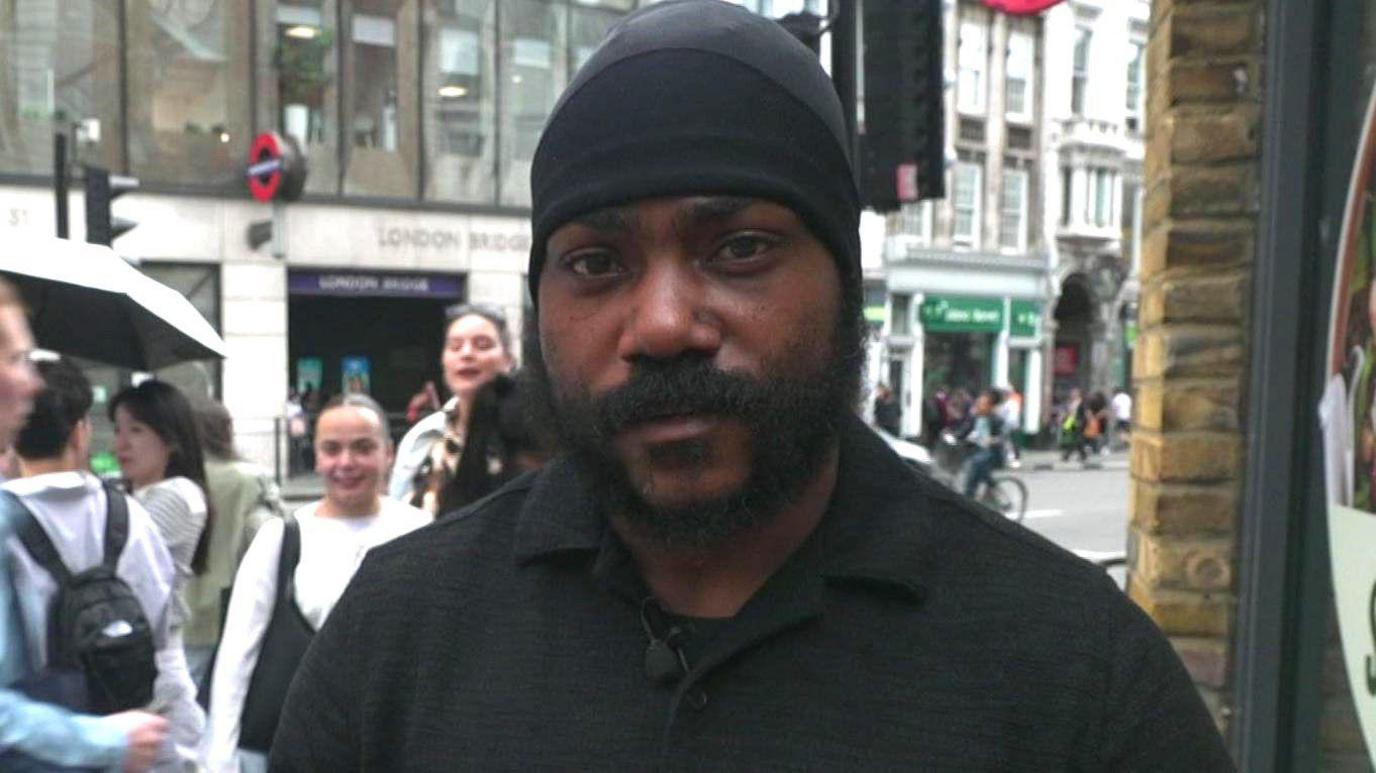
- Published12 July
